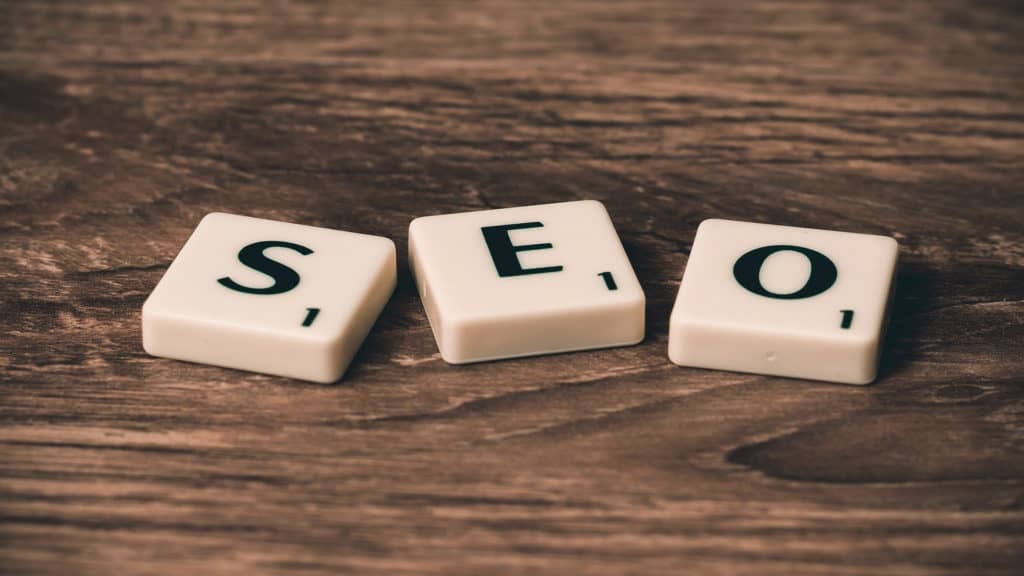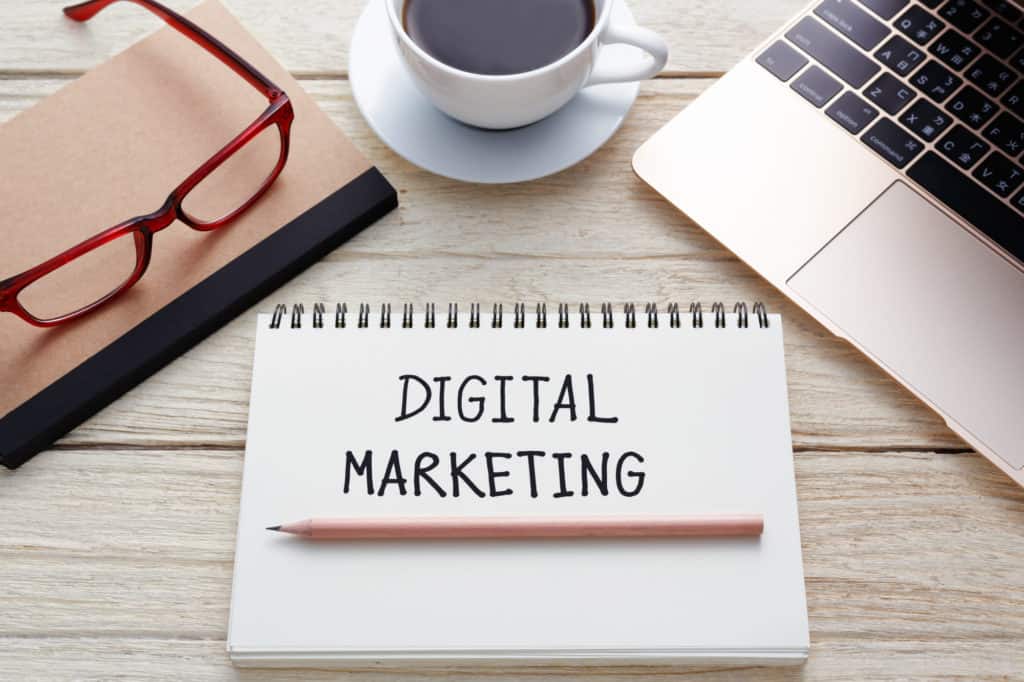When it comes to advertising in the age of the internet, digital marketing is of utmost importance. At this point in time, approximately 51% of consumers are using the internet to find new businesses. As such, by foregoing digital marketing, you would effectively be ignoring this 51%.
Looking for some digital marketing 101? You’re in the right place. Here is everything you need to know about marketing online.
Page Contents
What Exactly is Digital Marketing?

The simplest way to define digital marketing is to call it internet marketing. It’s marketing that takes place online and on devices such as computers, tablets, and phones.
Digital marketing has existed since the creation of the internet. However, as internet usage has increased, so too has the importance and prominence of digital marketing. As such, any brand worth its salt is using the internet to attract and retain new customers and clients.
What are the Different Types of Digital Marketing?
In truth, digital marketing is an umbrella term used to cover a variety of different types of online marketing.
We’ll review the specifics of each type below.
SEO

SEO stands for Search Engine Optimization. It is a complex form of marketing wherein the marketer carries out a number of strategies in order to increase a website’s search engine ranking.
The higher a website ranks for relevant keywords on search engines such as Google, the more exposure that website gains, and the more traffic it sees overall. As such, the goal of SEO is to have a given website rank toward the top of the first search inquiry page.
To optimize SEO, you must utilize a variety of tactics. These tactics occur on-page, off-page, and on the back-end of a website.
On-page SEO includes everything from blog posts to web copy to on-page images and the like. By adding the right keywords and using the right image attributes, you can increase your on-page SEO substantially.
Off-page SEO primarily revolves around backlinks. The more links you can get to your site from other relevant sites, the more trusted your site becomes within search engines.
Back-end SEO involves the code that comprises your site. The cleaner your code, the faster your site will run and the greater your SEO will be.
When it comes to affiliate marketing, SEO is vital. If you’re going to make substantial amounts of money from affiliate links, your website is going to need to see substantial amounts of traffic. SEO is the key to gaining this traffic.
Content Marketing
Content marketing is a form of marketing wherein you advertise via content. This content can be in written form, video form, or otherwise. Content marketing is important not only in and of itself but for the sake of SEO as well.
Some forms of written content marketing include blog posts, E-books, online brochures, white papers, and press releases. These documents will generally include content that is related to the brands that created them. For instance, a plumber might write a blog post about how to fix a broken pipe, demonstrating his or her expertise.
Video content is fairly self-explanatory: advertising via video. You could make a video tutorial, a vlog, a visual commercial, or something else of the sort.
There’s also image content. This runs the gamut from infographics to slideshows to standalone pictures and more.
One of the more unique ways to engage in content marketing is to create a podcast. By recording discussions about various topics in relation to your brand, you could draw in potential customers.
Note, most content marketing documents come with a call-to-action of some kind. A call-to-action is a phrase directing the viewer to visit a specific page or buy a specific product. It’s vital in converting leads.
Social Media Marketing

You’re likely well aware of social media. You probably use it to stay in the loop with your friends and acquaintances. But did you know that social media activity can help a brand to thrive?
Social media marketing is hugely important when it comes to landing new customers and clients. By engaging with social media users and by sharing with them your content marketing materials, you can draw them in, making them everyday customers. The key is to share and engage consistently.
All social media platforms can help to enhance your standing. That said, the ones to focus on include Facebook, Twitter, Instagram, and LinkedIn.
Affiliate Marketing

Affiliate marketing is a type of marketing that involves paying out commissions to other brands that have advertised your products and services for you. These other brands are effectively affiliates of your brand, thus the name.
This form of marketing can be highly beneficial both to the marketer and to the brand that is being marketed. Whereas the marketer receives a cut of every sale that he or she influences, the brand that produced the product receives a new customer.
Affiliate marketing generally involves the use of affiliate links. These links are placed in content throughout the affiliate’s website, YouTube videos, or content. When web users click on these links, they’re led to the seller’s website. Then, if they make a purchase on the seller’s website within a given time frame, the affiliate is credited with a commission.
There are two ways to become a successful affiliate marketer: 1. build a following, or 2. rank high on search engines such as Google. To do either of these things, you’ll need to engage in a variety of other types of marketing.
PPC Marketing
PPC stands for Pay Per Click. This is a form of advertising in which you place an ad on another company’s website and then pay that company every time the ad is clicked on. Though PPC marketing does force you to shell out some cash, it also provides your brand with exposure on high-visibility platforms.
Some of the platforms that provide PPC marketing opportunities are Google, Facebook, and Twitter, some of the most popular sites the internet has to offer. So, by paying for an ad on one of these platforms, you are effectively opening your brand up to substantial amounts of traffic.
Note, if you’re going to make use of PPC advertisements, you should have something worth paying for. Otherwise, you’ll be forced to pay for marketing without receiving any revenue to cover the costs.
Email Marketing

Email is far more than just a way to communicate with co-workers. Email can be used to market products and services as well. When done correctly, email marketing can both draw in new customers and help to retain existing ones.
But what does good email marketing entail? It entails building an email list and sending emails out to those on that list on a consistent basis.
These emails can contain anything from informational tips to videos to promo codes to giveaways to newsletters and more. The key is to provide value to the receiver and to show him or her why your brand is worth note.
How Much Does Digital Marketing Cost?

One of the biggest benefits of digital marketing is its cost. In many cases, brands can engage in digital marketing at no cost at all. As long as a brand has a website (which can be operated for as little as $10 a month), it can advertise itself over the internet.
SEO, content marketing, email marketing, affiliate marketing, and social media marketing can all be done at the cost of a website. The only form of digital marketing that can cost substantial amounts of money is PPC marketing. But even that is affordably priced compared to traditional marketing methods.
It’s important to note, though, that carrying out digital marketing campaigns isn’t always easy. SEO requires education and consistency; content marketing requires skill and time; social media marketing requires flair and personality.
As such, many brands end up hiring digital marketing agencies in order to help with the many aspects of digital marketing. If you hire such an agency, you could end up spending a decent chunk of change.
How Does Digital Marketing Differ from Traditional Marketing?

Digital marketing and traditional marketing have some similarities. However, they are, by and large, quite different.
We’ll discuss their differences below.
Digital Marketing is Cheaper
One of the biggest differences between digital and traditional marketing is that digital marketing is much cheaper. Whereas the cost of a TV commercial or radio advert can run into the thousands of dollars, the cost of a social media post is essentially non-existent.
If you’re working on a small budget, you should be focusing the majority of your energy on digital marketing, in particular. It can take a little more time but is much less risky.
Digital Marketing Involves Engagement
Another difference between digital and traditional marketing is the level of engagement inspired by the two. Whereas a TV commercial inspires no personal engagement between customer and brand, a blog post shared on social media does. A Facebook comment section, for example, will allow for direct communication.
This is vital, as personal engagement can help to build client trust. And if clients trust a brand, they’ll continue to buy from that brand.
Digital Marketing is Farther-reaching
When you pay for a radio advert spot or a television commercial you spot, your marketing efforts are limited to only a certain geographical area. Digital marketing, on the other hand, allows you to reach people all over the world. There are no geographical limitations.
Getting your site to rank on the first page of Google, for example, will allow it to be seen by anyone who’s searching for its relevant keyword. At the same time, sharing a post on social media gives your brand the opportunity to go viral, reaching millions of potential customers in a very short amount of time.
This potential for massive exposure combined with the low cost of digital marketing makes it quite an attractive option.
Digital Marketing Requires Less Leg Work
Another difference between traditional marketing and digital marketing is that digital marketing requires less leg work. Simply put, digital marketing can be done from a single computer. You don’t even have to leave the house to launch a digital marketing campaign.
This is rarely true of traditional marketing. Whether you’re making a commercial, producing a radio advert, or creating cardboard signs, you’re going to have to put a great deal of time and effort (and money) in. In many cases, the amount of time and effort required isn’t realistic for a small brand or business.
Should You Engage in Digital Marketing?

Now, you might be wondering: should you engage in digital marketing? If you’re trying to attract potential customers or clients, the answer is a hard “yes”.
Digital marketing is cheap, convenient, and effective. If someone really wanted to, he or she could use digital marketing to build a following from the comfort of his or her home.
It doesn’t matter whether you’re selling to consumers or other businesses, digital marketing can be vital in helping you to do so. At this point, there’s no good reason not to make use of digital marketing practices.
Moving Forward from Digital Marketing 101
This guide only covers digital marketing 101. If you really want to get into the nitty-gritty of digital marketing, you’re going to have to pursue additional information.
Looking for more advanced digital marketing info? You can find it right here at Freedom Influencer. We provide everything from informational blog posts to video tutorials to E-books and more.
Become a master of digital marketing by checking out our other blog posts now!

